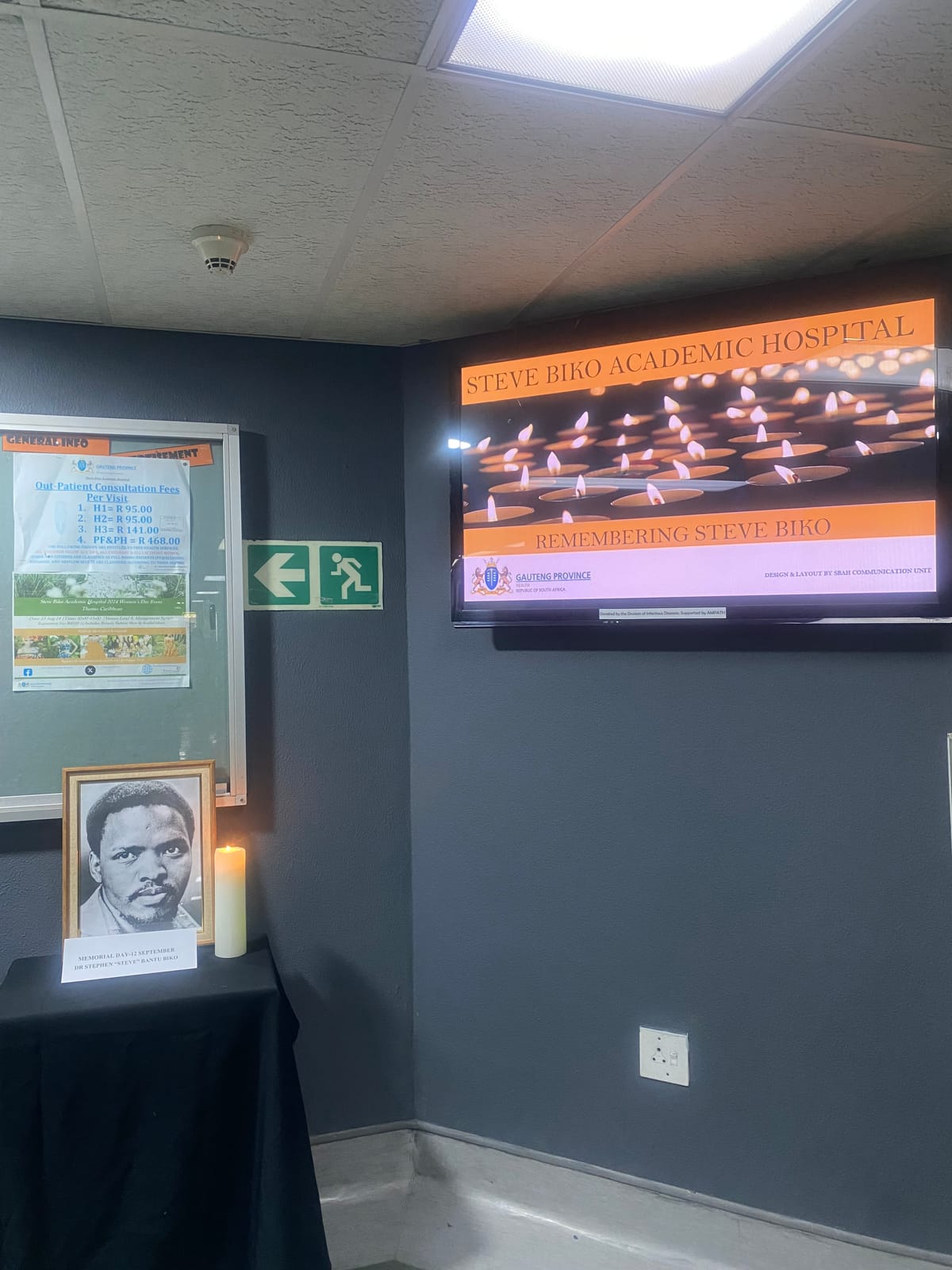Remembering Steve Biko

Today as I walked out of work I saw a memorial and a candle burning for Steve Biko who was killed on the 12 of September 1977.. and it got me thinking about how we walk daily in the walls of Steve Biko academic hospital but hardly remember the hero behind the name
Steve Biko: A Legacy of Dignity, Justice, and Empowerment
In Sesotho, there is a saying: “motjheka sediba ha a se nwe”—"he who digs a well does not drink from it." This phrase captures the life of Steve Biko, a hero who dedicated his life to the liberation of black South Africans, knowing he might never see the results of his efforts. Born on December 18, 1946, Biko spent his short but impactful life fighting for the dignity, pride, and rights of black people under the harsh apartheid regime.
Biko is best known for founding the Black Consciousness Movement, which encouraged black South Africans to regain their sense of identity and self-worth. He believed that true liberation started in the mind. By instilling pride in one’s heritage, Biko sought to free black people from the psychological chains of racism and oppression. He famously said, "The most potent weapon in the hands of the oppressor is the mind of the oppressed."
His journey began at the University of Natal, where he was studying medicine. However, his passion for justice and equality soon saw him leading the South African Students’ Organisation (SASO) in 1969, a movement that called on black students to become active participants in their own struggle for freedom. Biko’s work eventually spread beyond campuses, and he played a crucial role in establishing organizations like the Black People’s Convention (BPC) and the Black Workers’ Project, which addressed the needs of black workers.
Biko’s activism came at a heavy cost. In 1977, he was arrested, tortured, and killed by apartheid security forces. His death at the age of 30 shocked the world and exposed the brutality of the apartheid regime. Yet, like the well-digger in the Sesotho proverb, Biko’s work did not die with him. His legacy continues to inspire and empower those fighting for justice and equality today.
Learning from Biko’s Legacy as Doctors
Steve Biko’s life and values offer valuable lessons for us, especially as healthcare professionals. His belief in dignity and equality is something we can apply to our medical practice every day. Just as Biko fought against systemic injustices, we too must advocate for equal access to healthcare, ensuring that every patient, regardless of race or background, is treated with respect and receives the care they deserve.
Biko’s call for self-respect and empowerment encourages us to be leaders in our communities, advocating for better healthcare for vulnerable populations and challenging discrimination where we see it. As doctors, we are in a unique position to help heal not just physical wounds but also the deep-seated societal inequalities that persist today.
By embracing Biko’s message of Black Consciousness, we can foster an environment of pride and mutual respect among our colleagues and patients. His legacy reminds us that while we care for individuals, we also have a responsibility to contribute to a healthcare system that values every human life equally.
In our everyday lives, we can continue Biko’s work by standing up for what is right, treating others with dignity, and ensuring that our actions help create a more just and equal society. Like Biko, we can dig wells of empowerment and justice that future generations will benefit from. His legacy continues to inspire us to strive for a more compassionate and equitable world—one in which every person can live with dignity and respect.


